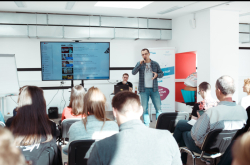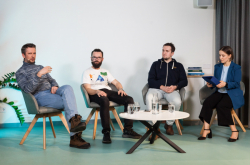Just recently, Technopolis "Moscow" biopharmaceutical cluster signed a collaboration agreement with ATEM Capital (USA) and TPP Healthcare (China) that involves consulting and financial support of export and import operations of the cluster’s participants on Chinese, Canadian and US markets. What were the other key events of last year?
Despite the fact that 2018 was quite a turbulent year from the viewpoint of the global movement of capital, we’ve been actively developing. At the beginning of last year, we opened our Canadian office, where we plan to accelerate new projects, Russian projects included.
What’s more, we’re actively developing our partnership with China as part of the Silk Road program: we transfer technologies and equipment from China to Russia. China experiences a surplus of equipment that can be transported to Russia on favorable terms. We also launched a hedge fund that invests in companies who work in the field of Life Sciences.
You have solid experience in the field of international business. Why do you continue working in Russia, as well?
We also have extensive experience of working in Russia. And you know, when an entrepreneur or investor considers their prospects, they don’t invest in what’s commonly known, expensive and liked by everyone. On the opposite, they look for new opportunities, something that’s underestimated by the market’s participants or associated with particular difficulties. Such opportunities are interesting and attractive. I am sure that today we face a special situation when Russian innovations and territorial rights of intellectual property in the CIS countries are highly underestimated by international investment and industrial communities.
In Russia, I often act as an expert in the hi-tech sector of economics. For example, I participated in ASI’s strategic session on the country’s technological development. I have a clear understanding of how everything can be organized from the standpoint of an entrepreneur, investor and regulator. I worked on these aspects in the USA, Western Europe and China, and is a member of the Advisory Board of the National Cancer Institute and the USA National Association of Corporate Directors. It would be really interesting to introduce and apply this experience in Russia.
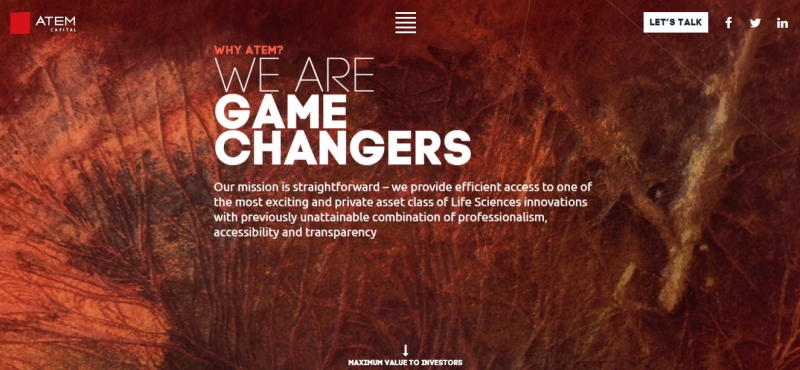
Recently, I’ve been working a lot with Russian entrepreneurs in the hi-tech field, and am also a mentor at Skolkovo. As part of these activities, I aim to offer support and advice to Russian entrepreneurs and managers, share experience, useful contacts and my own perception of the future of markets’ development.
You’ve worked with many startups in the field of Life Sciences in the USA and Western Europe. What do Russian startups lack?
I would first like to note the positive factors that are plenty in Russia, even though many speak of their disastrous insufficiency. First of all, we have enough ambitious, active and competitive people. There’s obviously a lack of particular competencies, but I don’t see that as something “disastrous”. It’s important to understand that we have many young specialists, they are active, integrated, and up-to-date on both national and global affairs, they know what has to be done and are working on it. Strictly speaking, these are the people who create a demand for fundamental and systematic education in the field of entrepreneurial activity with the purpose of a transformative growth of their competencies in the fields, technologies and geography that they are interested in.
Secondly, we have sufficient financial resources, even though many believe that we have no “long” or “smart” money. There are particular problems associated with professional investors, but not a lack of funds. We have lots of different financial resources that are yet to be used. Oftentimes, this happens because there are no projects that are attractive enough, or there’s no infrastructure and established strategy of working with such projects within the framework of professional investment portfolios, and so on.
To my mind, the more significant problem is the underdeveloped state of the ecosystem of innovative processes. So, it is necessary to develop it. This is a complex task: we have to work in the fields of science, certification, regulation, intellectual property protection, bringing projects to the international markets, and so on.
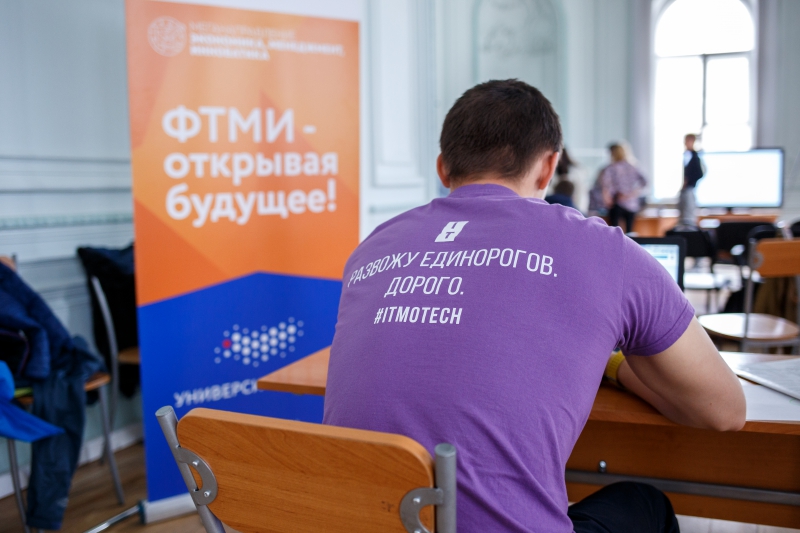
These issues are being gradually solved, but all of it happens quite fragmentarily. And it often happens that short-term objectives, the state’s direct responsibilities included, can contradict the strategy of the country’s technological development. I can give you the following example: if the state brings down the prices on drugs to minimal levels or creates additional risks for property rights protection, then developing innovative pharmaceutics in Russia becomes more difficult. By all means, it’s quite clear that we face an acute lack of cheap drugs, but that’s a strategic decision that is to be made: we either develop innovative pharmaceutics and participate in the global innovations market, or solve the current tasks of managing the expenses on procuring drugs and prolong our dependency on other countries’ products. That is why we have to approach such issues in a systematic manner and look at the full picture.
What is the place of education in this ecosystem? And what is your opinion of the current state of education in the field of entrepreneurship in Russia?
Education is undeniably an important element of an ecosystem of innovations. As I see it, there’re still no good fundamental solutions in this field. Nowadays, business education, international business education included, focuses on training professionals for major corporations where they have to organize effective business processes with good opportunities for scaling. Surely, they also teach to work in the conditions of uncertainty, but that’s not the levels of uncertainty that is common to the technology sector.
Working in the technology sector calls for different competencies, a different mindset and a different way of interaction between specialists. For this reason, I believe that we need new educational formats. I also think that the technology sector will continue to grow, and major corporations will also transform and introduce a more partner-like way of interaction between their employees. Therefore, it is already time to train people who will assume one of the three possible roles: professionals who can be effective in specific situations, for example on the early stages of projects, entrepreneurs, and investors.
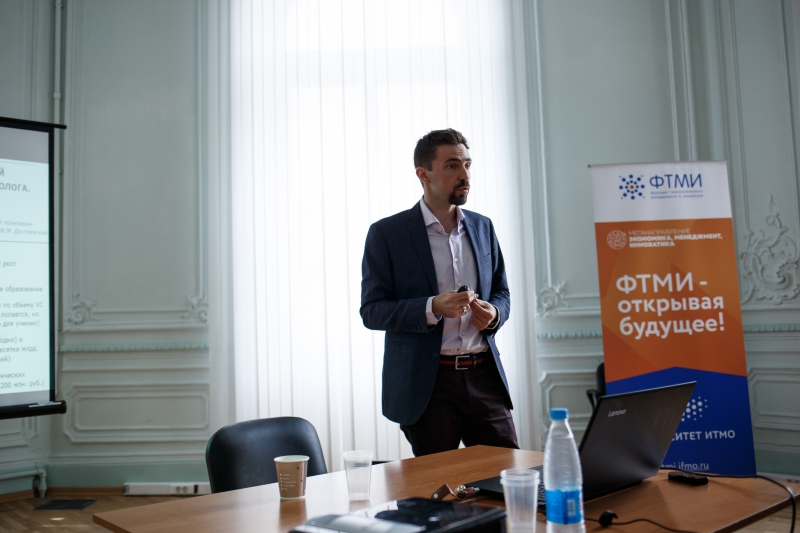
Why is it important? When one starts a breakthrough project, its chances of success, so to say, equal zero. In such a situation, you have to adequately understand all of its aspects and not just some of its functions, and you also have to be psychologically ready for this. And there are not enough educational programs that offer this kind of training. There are particular courses that are conducted as some form of entertainment, or when some renown entrepreneur or manager gives a lecture that is aimed at attracting funds, which is a form of advertising. But there are no programs that offer a fundamental, systemic approach.
Why it is at ITMO University that you decided to develop such an approach?
I’ve been following ITMO’s activities for some time already. It has succeeded in creating a strong brand and modern positioning. At the same time, the university has a good fundamental base and is competitive on the international market. Our fund has been actively monitoring ITMO’s projects for several years already, and we are quite impressed with their level. These are serious, competitive projects aimed at the international market.
As part of the university, I have an opportunity to create a full-fledged educational system for a faculty that focuses on technological entrepreneurship. This is a great case that can be scaled and help transfer my experience to the university’s Bachelor’s, Master’s and PhD students.
On the whole, I can see an attractive and important niche for a full-fledged educational system aimed at the technology sector. Today, there are few offers in this field, and ITMO University has the necessary positioning for attaining leadership positions in training professionals, entrepreneurs and investors for the technology sector.
How do you plan to attain that?
We plan to work in close collaboration with ITMO’s four schools that have competencies in the fields of informational, photonics, biotechnology and cyber-physical systems and already have international recognition.
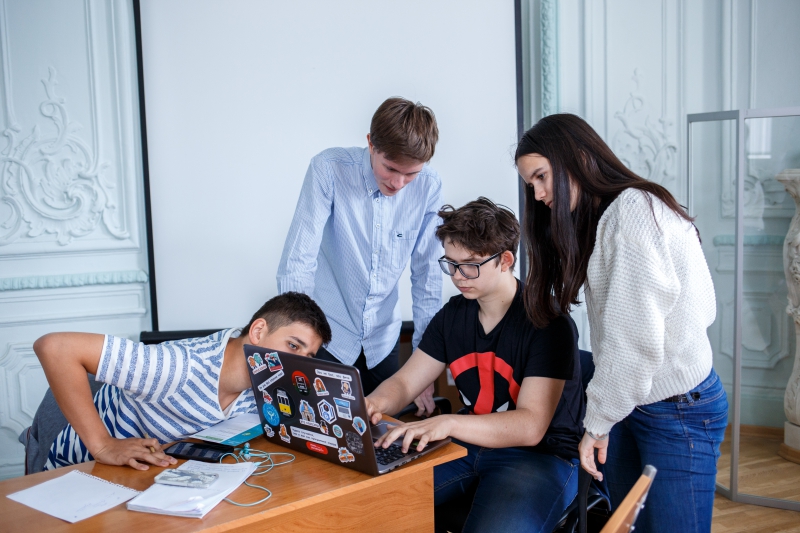
By all means, my professional field has to do with healthcare: biotechnologies, medical devices, means of diagnostics and digital medicine. Still, I also work with biotechnology and IT platforms in the power industry, agriculture and manufacturing. All of these segments are currently on the rise, and they have common traits and technologies. Then again, every branch has its own specifics, so it’s important to introduce these aspects starting with Bachelor’s programs.
We are planning to involve more lecturers with a practical focus, who can teach relevant materials and give real cases as an example. From the entrepreneurial standpoint, we will be experimenting with new solutions and creating pilot projects in collaboration with strong partners.
What are you going to change in the already existing programs and courses?
We aim to offer individual professional development paths, so are going to focus on several aspects. The first has to do with such fundamental things as intellectual property, marketing, finance, etc. The second will focus on the cutting-edge technologies that I was talking about: biotechnologies, IT and so on. Finally, the third aspect will do with the fields that are currently on the rise: biomedicine, power industry, manufacturing, agriculture, transport and others. We have to give our students an opportunity to prepare for the high entry costs to the technology sector and its particular fields.
It is very important for the students to get essential personal and professional experience at the faculty, and follow an individual educational path: choose a program, for example, one that has to do with intellectual property protection, and get sufficient understanding of technologies (biotechnologies or IT) and the specifics of applying them in a particular branch of industry. You see, the same aspects can be regulated differently depending on the field you work in. And if you don’t have the essential perception or practical experience in this field, you won’t make it in this market.
How will these changes benefit the faculty’s graduates and the university in general?
In the end, we want to train more people who will be ready to work in the hi-tech sector, who will think differently: like partners, not low-level specialists. At the university, they will get the experience of interacting with each other and conducting individual projects and graduate as people who know well how they want to develop further. It might be that some will come to understand that they don’t want to be entrepreneurs, and focus on working in the corporate sector; well, that will also be a good result. Others might understand that their goal and dreams make perfect sense, and there are people at ITMO with whom they can collaborate and develop new projects.
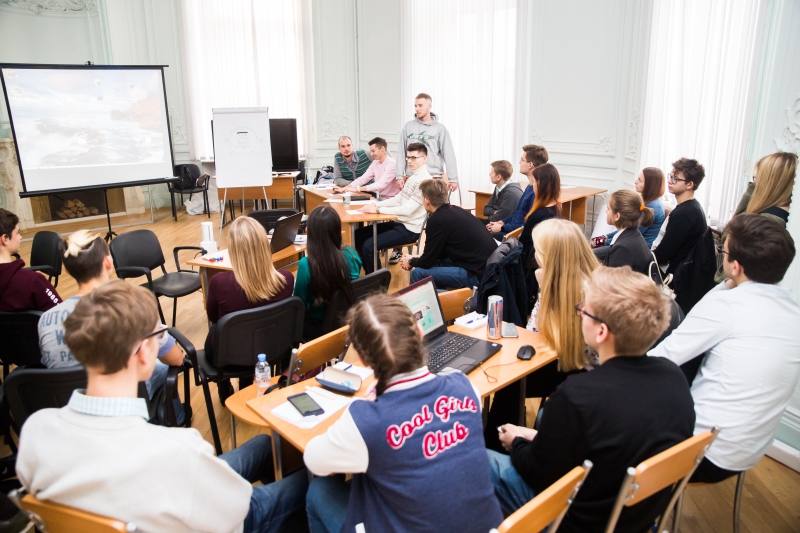
I also hope that the faculty’s graduates will form a formidable community with common values, and will invest in the university’s development. This will help ITMO become a continuously developing self-sufficient system.
Anton Gopka graduated from the Moscow State Institute of International Relations (School of International Economic Relations) and got supplementary education at INSEAD and Harvard. He is co-founder and general partner of ATEM Capital, an American company that manages an investment fund for US biotechnological companies. Before that, Mr. Gopka was the managing partner of Russia’s biggest fund in the field of Life Sciences as part of a strategic partnership between Rosnano and Domain Associates (USA). He is also a member of the Advisory Board of the National Cancer Institute and the USA National Association of Corporate Directors (NACD).



